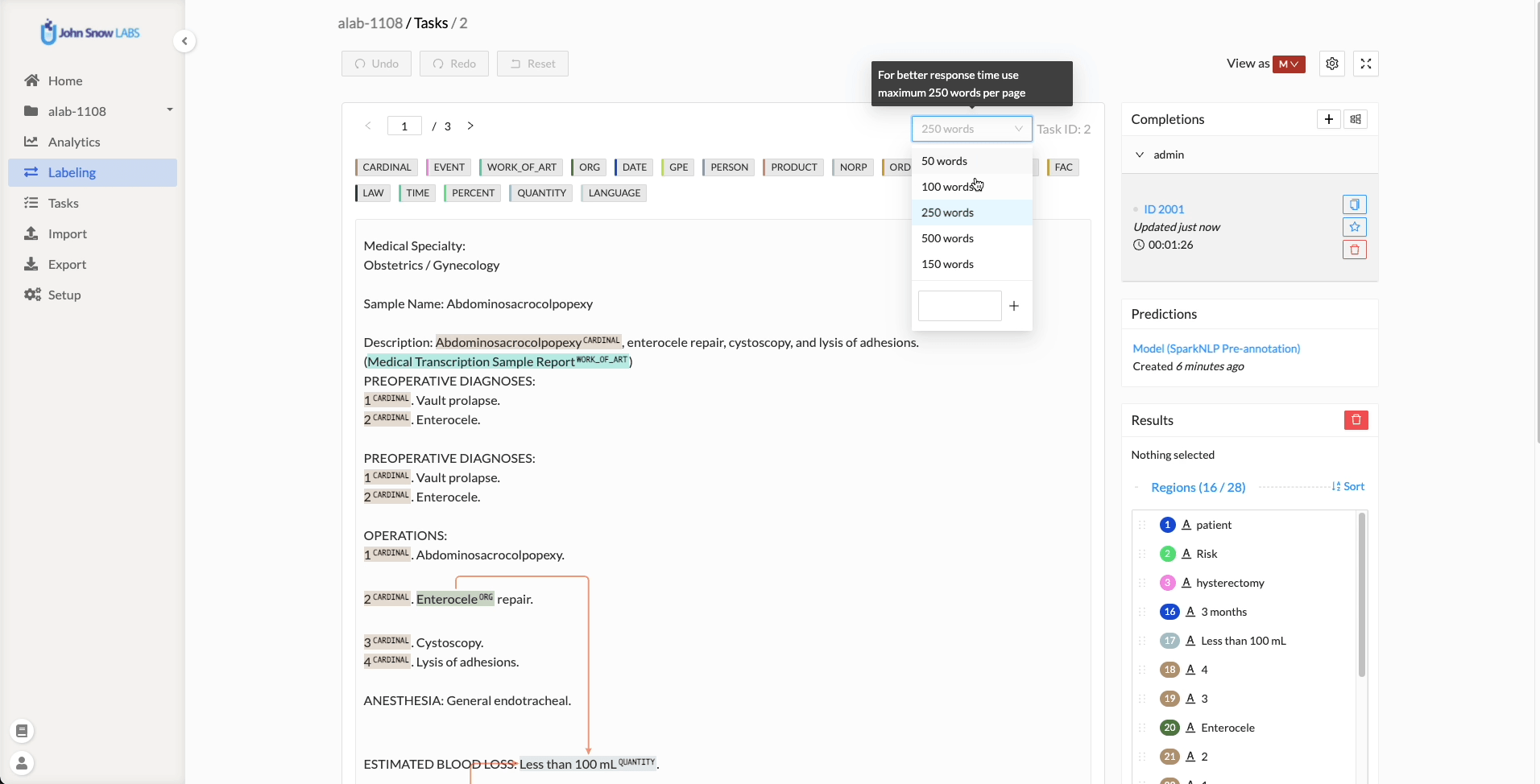A new generation of the NLP Lab is now available: the Generative AI Lab. Check details here https://www.johnsnowlabs.com/nlp-lab/
Dynamic pagination
The support for pagination offered by earlier versions of the Annotation Lab involved the use of the tag `<pagebreak>`. A document pre-processing step was necessary for adding/changing the page breaks and those involved extra effort from the part of the users.
With the release of Annotation Lab 2.8.0 a paradigm change for pagination happened. Going forward, pagination is dynamic and can be configured according to the user’s needs and preferences from the Labeling page. Annotators or reviewers can now choose the number of words to include on a single page from a predefined list of values or can add the desired counts.
A new settings option has been added to prevent splitting a sentence into two different pages.
Cross-page Annotations
With the dynamic pagination came another highly demanded feature – Cross page NER annotation for Text projects. This means that an annotator is now able to annotate a chunk starting at the bottom of one page and finishing in the middle of the next page if necessary.
This feature is also offered for Relations. In older versions of the tool, relations were created between chunks located on the same page. But now, relations can be created among tokens located on different pages.
The way to do this is to first change the pagination settings to include a higher number of tokens on one page, then create the annotation using the regular annotation approach and finally go back to the original pagination settings. The annotation is persisted after the update of the pagination.
































